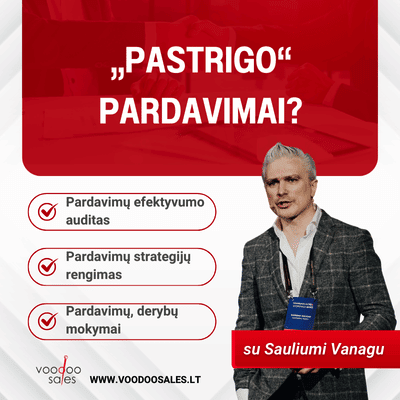HOW TO CHOOSE THE NEXT STEP IN YOUR CAREER?
1 year ago
Jūratė Jurginytė, career & leadership couch | Prasmingi pokyčiai |
On average, a person makes about 35,000 various decisions each day, of which approximately 70 are conscious and serious. These decisions range from what time to wake up, what to eat for breakfast, what to wear, when to exercise, whom to interact with, what gift to buy for a loved one, to how to choose (from numerous possibilities: invitations, ideas, personal desires), and what to do on the weekend.
Have we ever thought about how much time we devote to each decision? From split seconds to several minutes, more for serious decisions, depending on complexity, available information, our preparedness, external factors, but sometimes we lack time or information and make rushed decisions. This can create internal tension, lack of self-confidence, or even fear of consequences, feeling that the decision might be wrong. How do we know if we allocated enough time, energy, and other resources to our choice?
If you've delved into the situation, reflected on all the currently relevant and accessible information, and even listed the advantages, disadvantages, threats, and opportunities, perhaps talked to an expert or a few people, then you can feel assured that you've done everything you could. Internal reassurance that you've truly explored, understood, delved into, and decided is the most important action.
The inner sense of peace that arises confirms that the decision is sound. However, it's crucial not to let internal criticism sow doubt, fear, or uncertainty, which can greatly imbalance us. This happens to many people who, once doubtful, struggle to make decisions, get stuck in a constant search for the right decision, seek advice from various people, and ultimately blame themselves for not being "good enough, knowledgeable enough" to make such a decision. This leads to a breakdown in self-esteem. Doubts when making a decision can lead to doubts (in other words, lack of confidence) in oneself, one's abilities, and one's worth relative to others.
To avoid this, it's important to set time limits during which you'll make the decision and share it with someone related to the issue. Certain questions often help:
What will change and what impact will it have on future activities?
Will it have a positive effect?
What are the possible consequences?
How will I feel after choosing one option or another?
What emotions will it evoke?
Do I have all the necessary information? If not, what is missing and where can I get it?
Should I make this decision alone or with another person?
By when do I need to make a decision, can I do it faster, or do I need more time?
This approach effectively helps to form a clearer picture and to feel satisfaction, peace, and confidence inside, knowing that you've acted correctly. Clarity provides strength and self-assurance not only in this situation but also in new ones, where you can recall a "success story" to help make new decisions.
To move forward in your career, it's crucial to decide whether you'll progress horizontally or vertically in the next 5-10 years.
Horizontal career advancement involves taking on increasing responsibility, becoming a "senior specialist," "project manager," "expert," or "consultant" in your field. This path doesn't involve direct team or department management but focuses on growing expertise, making higher-level decisions, and working with key clients or projects. The goal is to become a professional in your field.
Opting for vertical growth usually means taking on leadership roles such as team management, planning and strategic tasks, reporting, problem-solving, human resource management, and participating in decision-making with company leaders.
I'm often asked whether every professional in their field should become a manager. The answer is an individual choice for each person, but almost everyone can develop leadership qualities. Career goals should be based on our values. If it's difficult to identify them, a coach or mentor can help. You'll gain clarity on why a particular goal is necessary for you now and which ones you can leave for the future.

